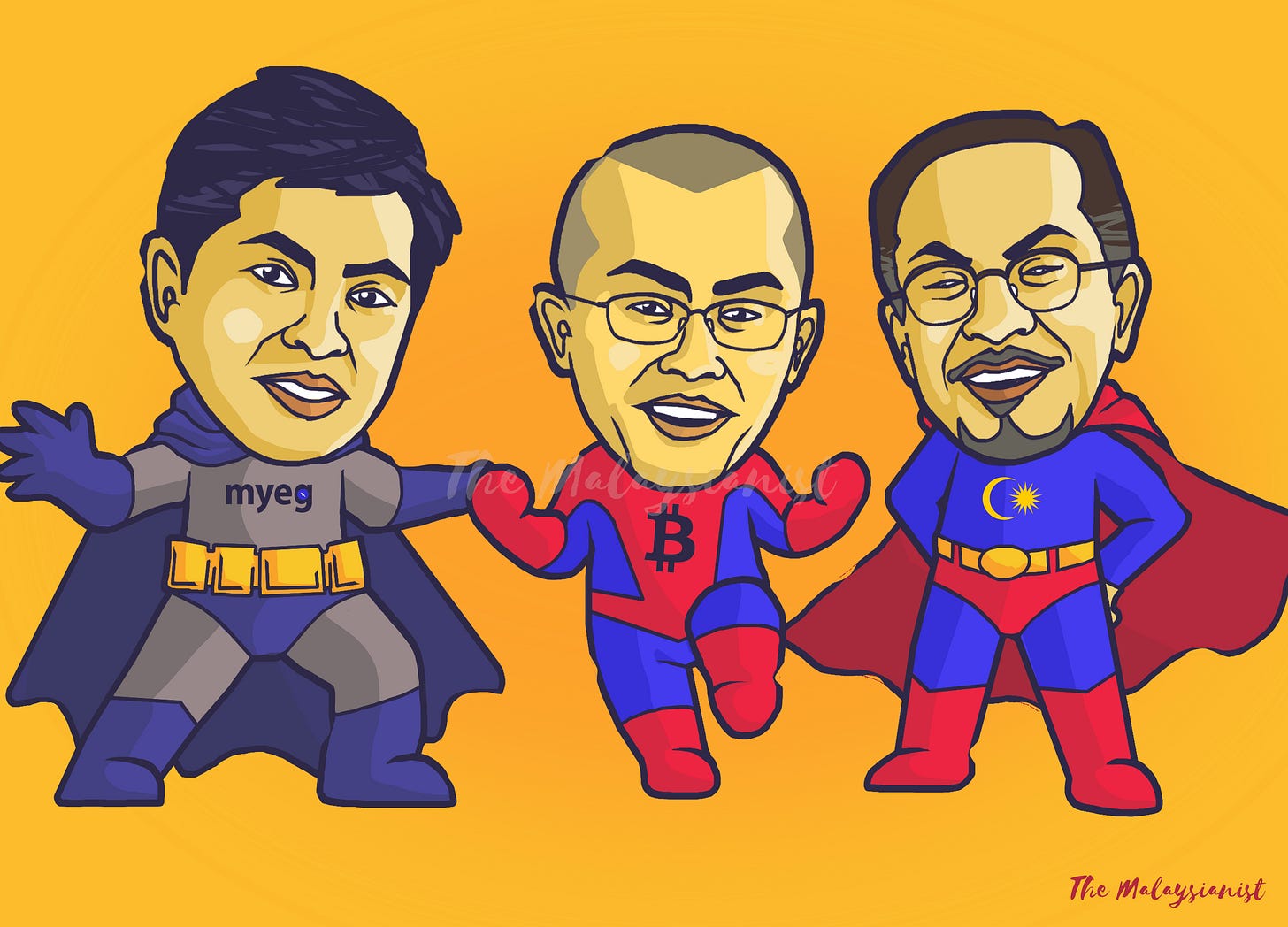Anwar and the crypto kings
The PM’s blockchain push comes with baggage.
Malaysia’s buzzing, but this one-man band can’t play every tune. Today’s show? Crypto, bitcoin, and the wonderfully weird world of digital money.
But first, a quick hit from the ex-central banker playlist.
Former Bank Negara governor Muhammad Ibrahim reckons real wages in Malaysia have eroded “by at least threefold”.
Graduate salaries today, he says, should be between RM7,000 and RM8,000 — if we account for 5% annual inflation. It’s a great soundbite. One that lands.
He’s not alone. Former deputy governor Sukudhew (Sukhdave) Singh is also on a roll, lighting up LinkedIn with lucid, post-retirement reflections.
Which raises the question: why do these guys only find their voices after they leave office?
You’re reading a paid version of The Malaysianist, a newsletter on money and power by writer and journalist Emmanuel Samarathisa.
I run monthly and annual subscriptions. There’s also the atas or founding member tier where you get all the perks of an annual subscription and more, such as an annual or founder’s report and insight into how this little corner of the internet fared throughout the year.
Group subscriptions are on the table, if you’re mulling over purchases for your organisation or for family members.
Prime Minister Anwar Ibrahim wants to turn Malaysia into a regional crypto and blockchain hub. The ambition isn’t new, but it comes with baggage.
Crypto has always straddled two extremes: utopian promises on one end, unsavoury characters on the other. Still, Anwar seems undeterred.
Recently, the PM met with Changpeng Zhao — better known as CZ — the billionaire founder of Binance.
Once the kingmaker of global crypto, CZ was convicted in the US for money laundering violations, spending four months in prison last year. He’s staging a comeback, with backing from Abu Dhabi.
Also in the room: Wong Thean Soon, the politically-connected businessman behind MyEG, a listed company long embedded in Malaysia’s e-government outsourcing ecosystem.
That both men had the prime minister’s ear says a lot about where Malaysia’s digital ambitions are heading — and who gets to shape them.

